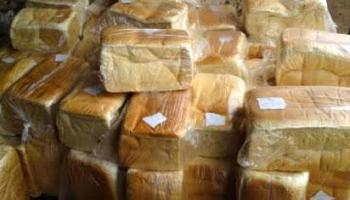
The Vice Chancellor of Obafemi Awolowo University (OAU), Ile-Ife, Professor Eyitope Ogunbodede, has said that incessant clashes between farmers and herdsmen in some parts of the country are having adverse effects on agricultural research and productivity.
Ogunbodede made this disclosure while speaking at the Institute of Agricultural Research and Training (IAR&T) Ibadan, the Oyo State capital on Monday.
The Vice-Chancellor, who spoke during the opening of 2020/2021 annual-in-house review exercise/33rd South West Zonal Research Extension Farmers Input Linkage System (REFILS) workshop, advised that all efforts must be put in place to find solutions to incessant clashes among farmers and herdsmen.
He maintained that climate change, COVID-19 pandemic coupled with the clashes between farmers and herdsmen required a new approach so as to tackle food insufficiency in the country.
Ogunbodede while speaking at the event attended by Chief of Staff to Governor Seyi Makinde of Oyo State, Chief Bisi Ilaka, Commissioner for Agriculture in Ekiti State, Dr. Adetoyi Ezekiel Olabode, Dr. Debo Akande and representatives of Governors of Ogun and Lagos states, noted that researchers must think of ways to mitigate the effect of the clashes so as to avert food scarcity.
He said, “The issues of climate change, friction between farmers and herdsmen and indeed COVID-19 pandemic, have affected agricultural research and productivity and required a new approach to research and development.
“Researchers must now begin or think of ways and means of mitigating these.
“I am aware that as a result of the Covid-19 pandemic in the year 2020, the institute was unable to hold the annual-in-house review exercise and the REFILS workshop. This is why this year’s event is in respect of the years 2020 and 2021.”
Former Chief of Staff to Niger State Governor who lectures at the department of Agricultural extension, University of Ibadan, Professor Mohammed Kuta Yahaya noted that Nigerian government must strive to tackle insecurity in order to avoid food scarcity.
“Boko Haram started in Borno in 2009, in a decade it has become a West African group, the attacks are having its impact on food
He said, “The issues of climate change, friction between farmers and herdsmen and indeed COVID-19 pandemic, have affected agricultural research and productivity and required a new approach to research and development.
“Researchers must now begin or think of ways and means of mitigating these.
“I am aware that as a result of the Covid-19 pandemic in the year 2020, the institute was unable to hold the annual-in-house review exercise and the REFILS workshop. This is why this year’s event is in respect of the years 2020 and 2021.”
Former Chief of Staff to Niger State Governor who lectures at the department of Agricultural extension, University of Ibadan, Professor Mohammed Kuta Yahaya noted that Nigerian government must strive to tackle insecurity in order to avoid food scarcity.
“Boko Haram started in Borno in 2009, in a decade it has become a West African group, the attacks are having its impact on food security. Government must ensure that all Nigerians have access to vaccines to address COVID-19 pandemic.”
Executive Director of IAR&T, Professor Veronica Obatolu in her welcome address, enumerated some of the challenges facing the institute.
She insisted that erratic supply of electricity has affected most of the research and seed storage funding.
“Short supply of electricity has affected most of our research and seed storage funding. Most lands have been under continuous cultivation, opening of new lands requires huge capital.
“The incidence of land intruders is becoming problematic in some locations.”



